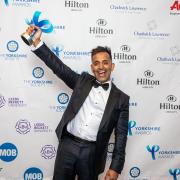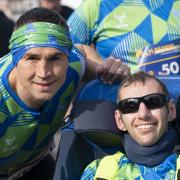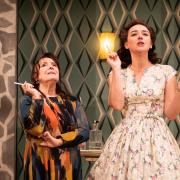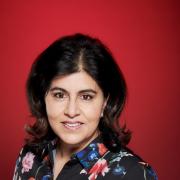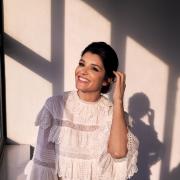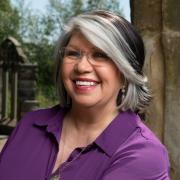My preferred way to interview Sir Michael Parkinson would be under hot lights in a TV studio, just after he's walked down a flight of stairs towards me with a band playing his theme tune. Let's see how he likes it.
That option being unavailable, I settle for 30 minutes with him over the phone. Well, there's still a pandemic about, and Parky - as I definitely don't call him to his face - is ensconced in his home counties home.
It goes without saying that the legendary Cudworth-born broadcaster misses the county. Even though he could never have accomplished all he's achieved if he had stayed on at the South Yorkshire Times and the Barnsley Chronicle (his first jobs in journalism), he's proof that while you can take the man out of Yorkshire, you can't take Yorkshire out of the man.
'You never lose the umbilical cord,' he agrees. 'I feel very Yorkshire all the time, whether I'm there or not. You work in London because you have to, because that's where the newspapers and TV studios are. Now I've got a bit more time it's nice to be able to come back to Yorkshire and reacquaint myself with the people and the glorious countryside. I find that when you're not in Yorkshire, and not able to look at the grandeur of it all, you never lose the feeling that you're missing out on something.'
This year is a golden one for Michael because his eponymous chat show is celebrating its 50th anniversary. It enjoyed a late night slot on the BBC from 1971 until 1982, and then returned to British TV from 1998 to 2007, switching to ITV halfway through its run.
And what a run it was because Parky got to interview the most famous people in the world, many of whom were his heroes. We're talking the likes of Fred Astaire, Gene Kelly, Orson Welles, Bette Davis, Mickey Rooney, John Wayne, James Cagney, David Niven, Bing Crosby, James Stewart and Muhammed Ali. If you were growing up in Britain in the 1970s, it was must-see television.
Of course, his BBC chat show first started in TV's golden age, when there were just three channels to choose from and no internet. ''The golden age' is a bit of a cheap tagline, isn't it?' he says. 'But I know what you mean if you look at the people I had on.'
One his favourites was Swedish actress Ingrid Bergman, his boyhood crush. 'Sadly, when I met her, she was ill,' he says. 'She was dying. And that was terribly, terribly sad, because anyone who saw her in Casablanca fell in love with her immediately. When you saw someone on screen when you were young and had a crush on them, it was interesting to meet them 20 or 30 years later and find out that they were very nice people, as well as being beautiful and talented and all the rest of it. Lauren Bacall was the same. Highly intelligent, a very attractive woman and I enjoyed her company. She was a good conversationalist, she liked a laugh. She was a tease, all those sort of things.'
Famously, Parkinson also introduced the wider world to Billy Connolly — although, apparently, it nearly didn't happen. 'When we first met Billy we were aware that we had gold dust on our hands,' he says. 'There's a story to be told there — although it's not for me to tell, it's for Billy. But the BBC was very reluctant at the time about him, let me tell you. They tried to find ways to dilute him. But that misses the point with Billy Connolly who has a real, animal talent that's wonderful. I knew he would be a huge star as soon as I met him... It was important for me to like (the guests), and not be disappointed by them. And I can't think of many who did disappoint.'
Well, I can think of a couple, maybe. Apart from Meg Ryan (who advised him to 'just wrap it up' in a 2003 interview) there was the spiky exchange with a pre-Dame Helen Mirren in 1975, who understandably bristled when he asked her if her 'equipment' stopped people from seeing her as a 'successful actress'. It's a question that hasn't dated well.
'You win some, you lose some,' he says. 'It's like life, really. You meet some people you like and get on with, and with some you find it difficult. And I found it very difficult with a couple of ladies on the show. Nothing terminal. And it's fine. It all adds to the texture of the show and to the attraction of the show. Look at Helen Mirren. She came back at least a couple of times more after that famous interview with her. So a lot of it is just... well... it's showbiz, basically.'
And while chat shows aren't supposed to be an ordeal for the guests, they can't be easy to appear on, either. 'My sympathies are always with the person walking down the stairs towards me,' admits Michael. 'Because think of the prospect. The band plays, there's a huge noise and the lights are on you — you could fry an egg on the lights — and 500 or 600 people in the studio audience are waiting with bated breath. And before you go on, someone tells you: 'Just walk on, smile and enjoy it.' Enjoy it?! Are you joking?! It's bloody tough, this. And there's a gormless Yorkshire lad at the bottom of the stairs waiting for you.'
There won't be another 'appointment to view' chat show like Parkinson, because the TV landscape has changed.'It's an ugly landscape too, with social media and so on,' says Sir Michael. 'The things that happen on there I find aren't altogether to my taste. But I was lucky. I managed to creep in under the radar and have a very, very happy and long career in TV and media.
Anyone who can say that is very fortunate indeed. As my dad used to say: 'And they pay you for it?'














